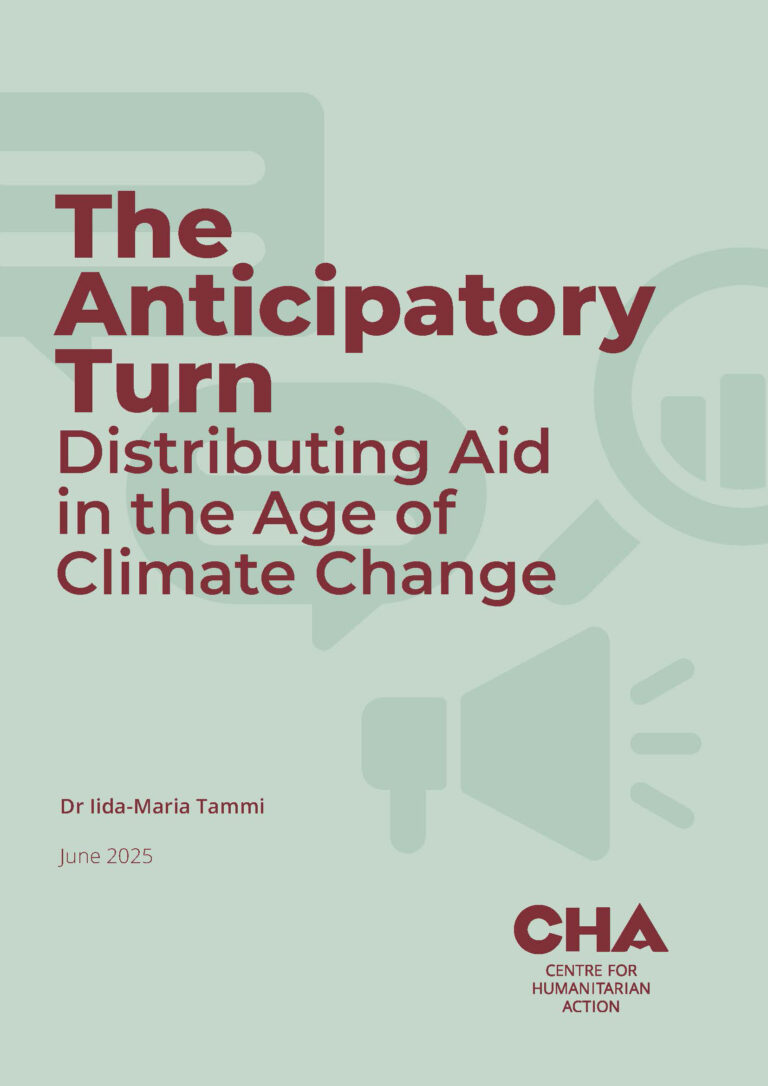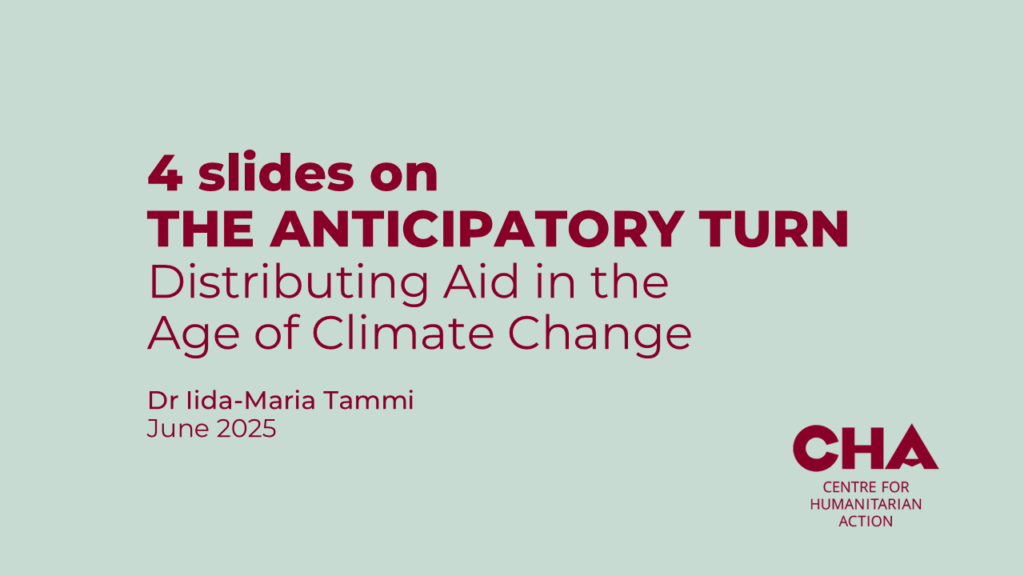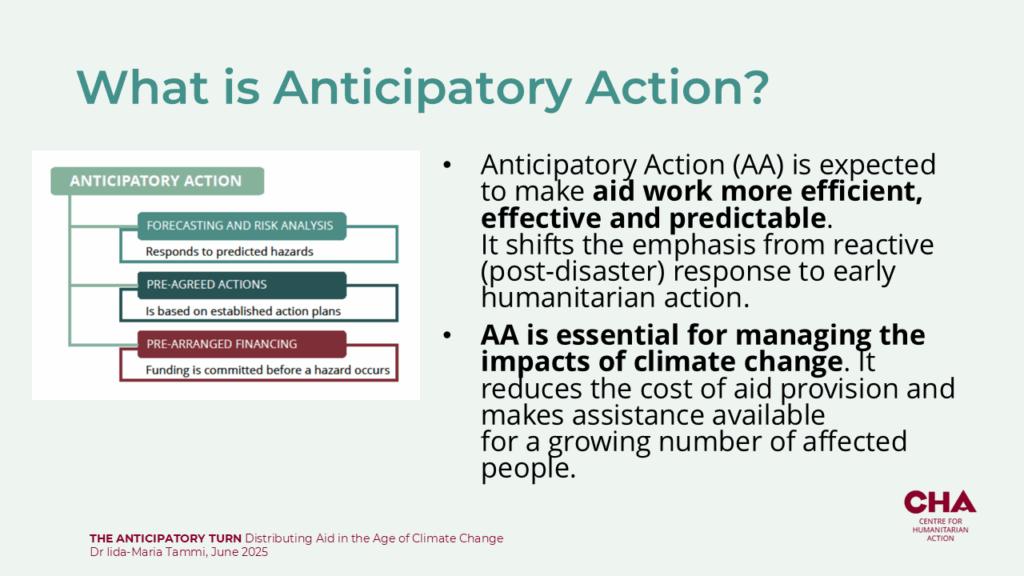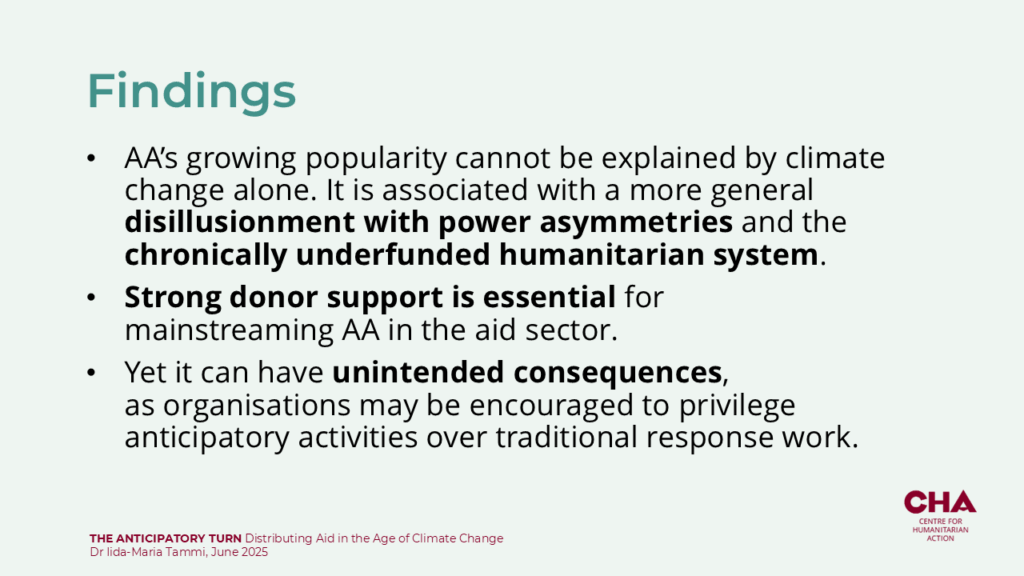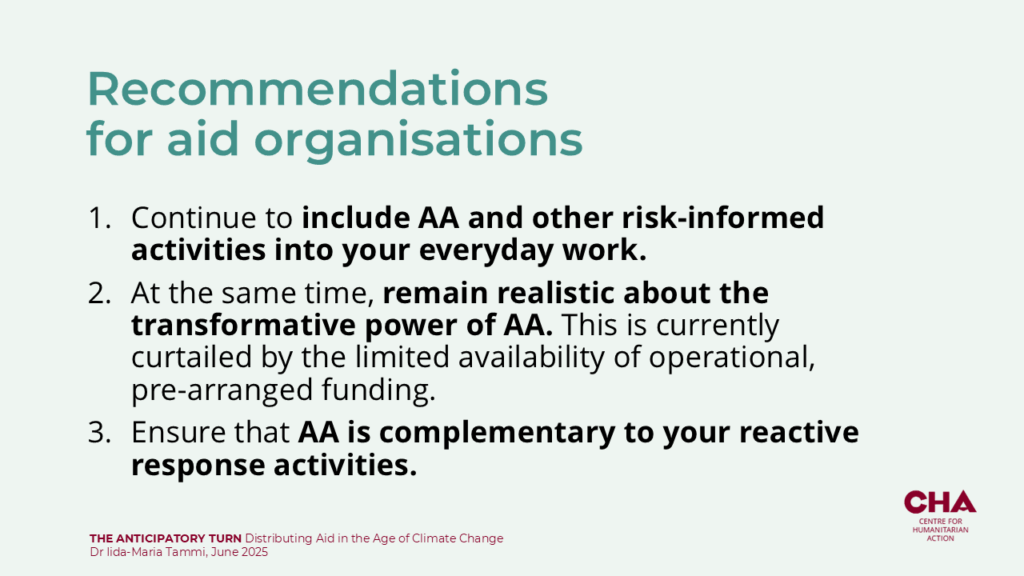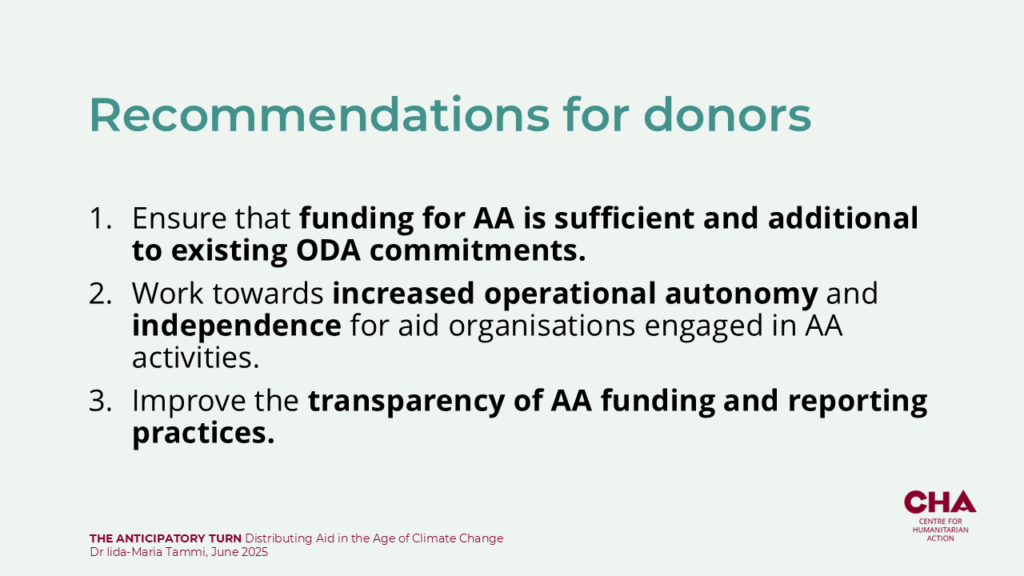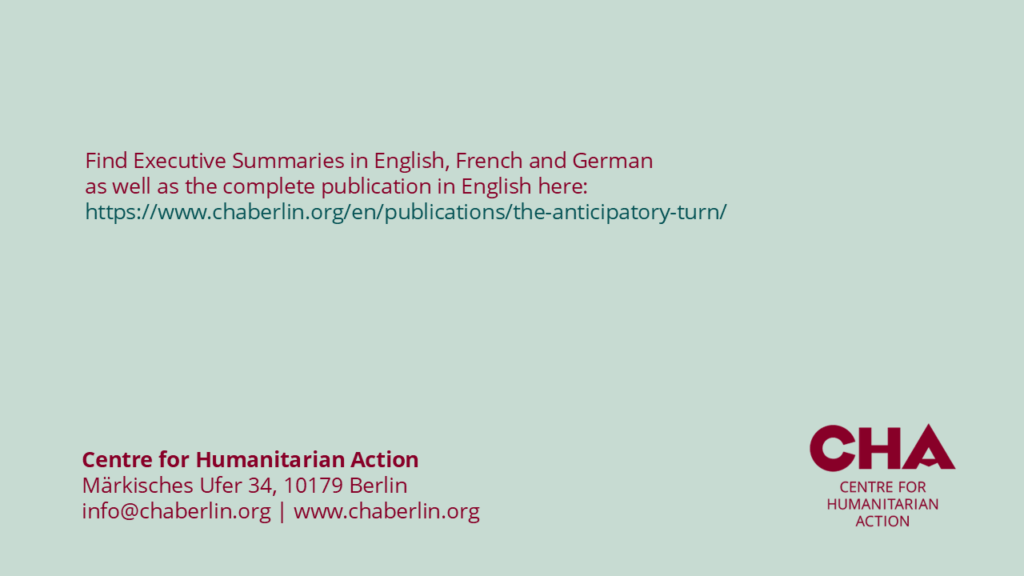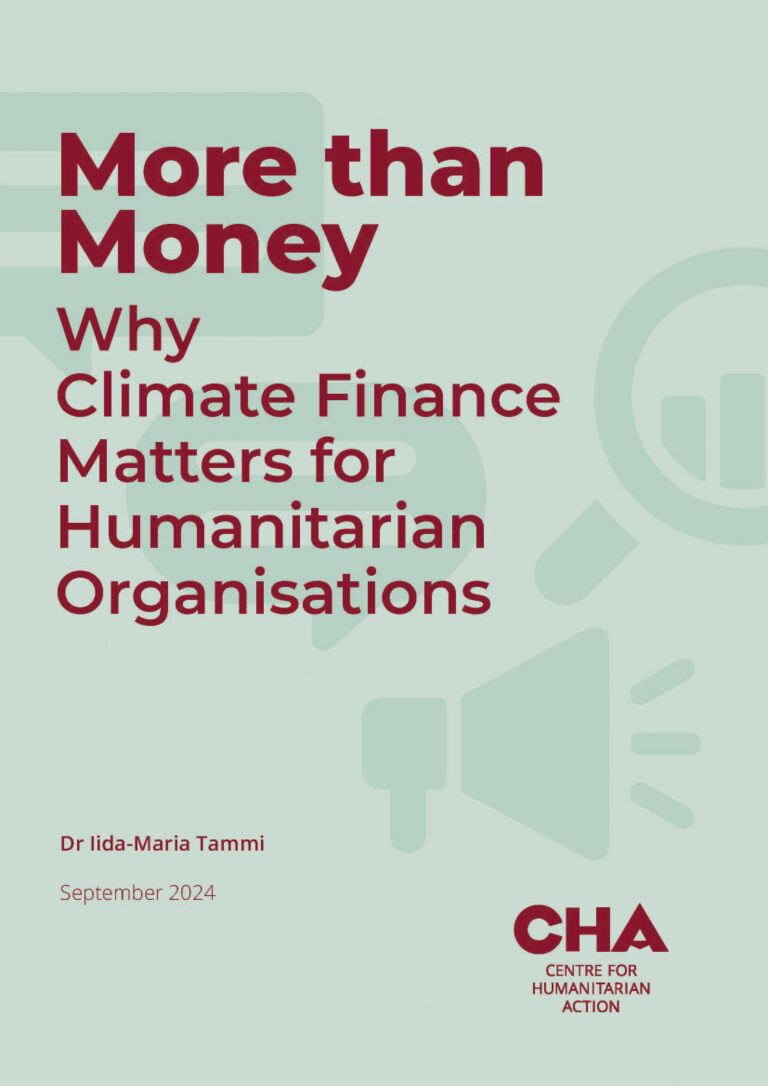| Author: | Dr Iida-Maria Tammi |
| Date: | 07.07.2025 |
| Downloads: |
Paper (EN)
Executive Summary (EN) Executive Summary (FR) Executive Summary (DE) |
Can anticipatory action help solve the problem of humanitarian climate crisis?
Climate change presents a dual challenge for aid organisations. It is expected to drive a rapid increase in global humanitarian and protection needs, while simultaneously making aid provision more expensive and diminishing the available resources. Experts estimate that up to 200 million people could require humanitarian assistance due to climate-related disasters by 2050, raising their cost from the current USD 20 billion to USD 29 billion. These climate-induced pressures add to the existing problem of falling aid budgets and declining public support for international assistance.
In response, the humanitarian community has turned to early and forward-looking aid provision. In this paper, CHA Research Fellow Dr Iida-Maria Tammi analyses the ethical and policy implications of this ‘anticipatory turn’ in international humanitarian affairs. The paper focuses specifically on Anticipatory Action (AA), which uses pre-agreed activities, triggers and decision-making rules to act ahead of a predicted hazard to prevent or reduce its acute humanitarian impacts.
The paper is divided into three parts. The first part positions AA within the broader humanitarian funding landscape, while the second examines its ethical and policy consequences. Drawing on original interview data, the paper critically reviews some of the key arguments commonly cited in favour of AA, including its potential to a) help humanitarians better manage the effects of climate change, b) make aid provision more predictable, dignified and apolitical, and c) reduce the financial cost of humanitarian assistance. The final section summarises the discussion and makes recommendations for aid organisations and donors.
Take Aways
(Hover to pause)


